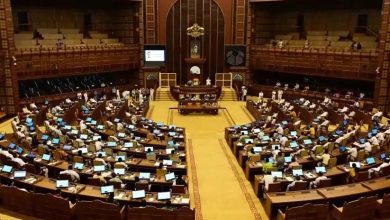Union Budget 2024: Expected to address healthcare, quality

Union Budget 2024: This budget is expected to address affordability, accessibility and quality of healthcare in India. We will have to wait till the official announcement on July 23 to see the specific measures outlined by Finance Minister Nirmala Sitharaman. The Indian healthcare sector has high expectations from the upcoming Budget 2024. Industry leaders are urging the government to increase allocations for healthcare. This will give a major boost to public health initiatives, infrastructure development and medical research resources. Experts expect tax incentives to be announced. This could include tax breaks for healthcare providers or insurance companies to make healthcare more affordable.
Need for increased budget allocation
P N Arora, Chairman, Yashoda Super Speciality Hospitals Kaushambi, said, “An important aspect of healthcare demands revolves around accessibility and affordability. The sector advocates for subsidised or free health check-ups, especially for women and children, aimed at improving preventive care and early detection of diseases.” In addition, there is an emphasis on incentives and support for domestic manufacturing of medical devices to reduce dependence on imports and align with the ‘Make in India’ campaign, Arora said. Non-communicable diseases (NCDs) such as diabetes, heart disease and cancer are a major health concern in India. There is a need for increased budget allocation for prevention, treatment and management of NCDs, including research, public awareness campaigns and making treatment options more accessible. Retraining healthcare personnel
Arora highlighted that the sector also emphasizes the importance of training and retraining healthcare personnel to meet the evolving healthcare demands with new technologies. Regarding health insurance, Arora said stakeholders are demanding fiscal reforms to create a more inclusive and sustainable health coverage model. This includes revisiting GST tariffs on healthcare services and products to ensure affordability and access across all socio-economic sectors. Additionally, there is a demand for insurance coverage for preventive healthcare measures, not just reactive medical treatments, Arora said.
Benefits of increasing healthcare budget
Jasdeep Singh, group CEO of Care Hospitals Group, also urged the government to consider increasing the budget for the healthcare industry. “Increasing budget allocation can improve access and affordability not only in tier I cities but also in tier II and tier III cities. Simplifying and improving taxes, especially GST, can contribute to this goal,” Singh said.
Improving infrastructure
Singh believes there is a great need to focus on hospital infrastructure. “While hospitals provided essential and high-quality treatment during the pandemic, the current circumstances underscored the lack of facilities, especially in non-metro cities, in terms of beds and treatment options. As a result, the government should prioritise enhancing infrastructure, especially in non-metro areas, to ensure that individuals can easily access healthcare when required,” Singh said. Door-to-door eye screening initiative Rajat Goyal, Co-founder and CEO, Eye-Q Super Speciality Eye Hospitals, said, “With 62 million visually impaired individuals and 8 million blind people, India bears nearly a quarter of the world’s burden of blindness and visual impairment. We eagerly await the upcoming Budget 2024-25, hopefully with transformative policies to address these pressing issues.” Goyal strongly advocated for a large-scale door-to-door eye screening initiative required for early detection and treatment. Moreover, the backlog of eye surgeries has increased further due to the COVID-19 pandemic, which must be addressed urgently, especially in rural areas where access to healthcare is limited.
Infrastructure boost
Goyal added, “We also expect infrastructure boost that will enhance the capacity of eye care facilities across the country. Also, support for research and development is crucial to drive innovative treatments and technologies in eye care.” Reducing GST and other import taxes on medical devices and supplies will significantly reduce costs, making eye care more accessible and affordable. With these measures, “we believe the Budget can pave the way for a brighter, clearer future for millions of individuals, ensuring quality eye care is within reach of all.” Emergency Services Pranav Bajaj, CEO of Medulance, said, “The Budget is a critical opportunity to strengthen India’s emergency services. We urge the government to prioritize strategic investments in these areas to improve response times and overall emergency medical care efficacy. A key expectation is a revision of the GST structure for ambulance purchases. Currently burdened with 28% GST, we propose to reduce it to 0%.





